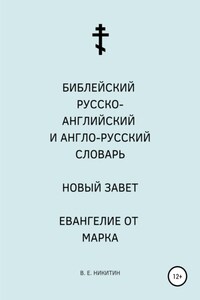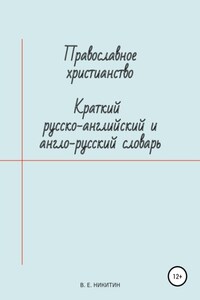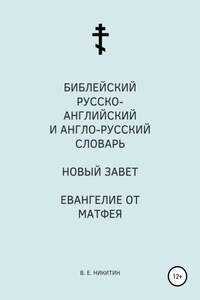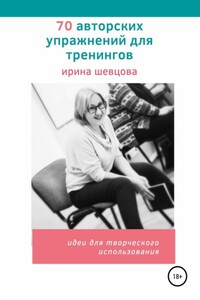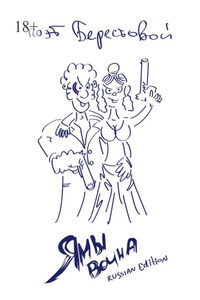A1. An expression meaning “first-rate.” Derived from Lloyd’s “Registry of Shipping,” in which letters denote the quality of a ship’s hull, and figures that of its equipment. A vessel registered A1 is of the first class in all respects.
Abbey Laird. An insolvent debtor who in former times sought the sanctuary of the precincts of Holyrood Abbey against arrest.
Abbey Road. From the ancient abbey of the Holy Virgins of St John the Baptist in St John’s Wood.
Abbotsford. The name given by Sir Walter Scott to his residence on the banks of the Tweed, from the poetical assumption that the abbots of Melrose must have forded the stream hereabouts in olden times.
A.B.C. Girls. Waitresses at the depots of the Aerated Bread Company Limited.
Aberdeen. From the Celtic aber, estuary, confluence; the town at the mouth of the Dee.
Abernethy Biscuits. From the name of the baker who introduced them. Their connection with Dr Abernethy was repudiated by the great physician himself.
Aberystwith. The town at the mouth of the Ystwith.
Abigail. The generic name for a waiting-maid, in allusion to the handmaid who introduced herself to David (1 Sam. xxv. 23). Its popularity during the second half of the seventeenth century may be accounted for 2by the fact that the maiden name of Mrs Masham, the waiting-woman of Queen Anne, was Abigail Hill.
Abingdon. A corruption of Abbendon, the town of abbeys, being a place famed for religious houses far back in Anglo-Saxon days.
Abingdon Street. From the ancient town residence of the Earls of Abingdon.
Abney Park. From Abney House, now a Conservative Club, the residence of Sir Thomas Abney, Lord Mayor of London. Dr Isaac Watts passed away at Abney House in 1748.
Abode of Love. See “Agapemonites.”
Abolitionists. The party sworn to the total and immediate abolition of slavery in the United States.
Above Board. Open, not playing an underhanded game. The owners of the gaming-tables on a race-course unsuspectedly regulated the issue of the spinning hand on the board by means of a treadle.
Abraham Newlands. Bank of England notes, so called from the signature they bore early in the last century.
Absinthe. From the Greek apsnithion, wormwood.
Absquatulate. A Far-West Americanism. A squatter who suddenly left his claim was said to have absquatulated.
Abyssinia. The country of the Abassins, or “mixed races.”
Academy. From the garden of Academus, where Plato taught his disciples; called on this account the Academics, or Academic School of Philosophy.
According to Cocker. Strictly correct. After Edward Cocker of Paul’s Chain, who published a most popular arithmetic.
According to Gunter. An expression much used in America for anything done properly and systematically. The allusion is to Edmund Gunter, the celebrated mathematician, who invented a chain and scale for measuring.
3Achilles Tendon. The tendon reaching from the calf of the leg to the heel. See “Heel of Achilles.”
Acknowledge the Corn. An Americanism of extremely popular application. Its origin is thus given by The Pittsburg Commercial Advertiser: “Some years ago a raw customer from the upper country determined to try his fortune at New Orleans. Accordingly he provided himself with two flat boats–one laden with corn and the other with potatoes–and down the river he went. The night after his arrival he went up town to a gambling-house. Of course, he commenced betting, and, his luck proving unfortunate, he lost. When his money was gone he bet his ‘truck’; and the corn and potatoes followed the money. At last, when evidently cleaned out, he returned to his boats at the wharf, where the evidences of a new misfortune presented themselves. Through some accident or other the flat boat containing the corn was sunk, and a total loss. Consoling himself as well as he could he went to sleep, dreaming of gamblers, potatoes, and corn. It was scarcely sunrise, however, when he was disturbed by the ‘child of chance,’ who had arrived to take possession of the two boats as his winnings. Slowly awakening from his sleep, our hero, rubbing his eyes and looking the man in the face, replied: ‘Stranger, I acknowledge the corn–take ’em; but the potatoes you can’t have, by thunder!’ Since that time it has become customary for a man who frankly admits having been hoaxed or beaten to say: ‘I acknowledge the corn.’”
Acropolis. From the Greek akros, highest, and polis, city. A citadel or fortress overlooking a city, as at Athens.
Acton. Anglo-Saxon for “Oak Town,” built in the neighbourhood of a great oak forest.
Actors’ Day. A day–the third Thursday in October–set apart for a performance in all the theatres of the United Kingdom in aid of the various theatrical charities–actors being pledged to give their services, dramatic authors to forego their fees, and managers to devote the entire receipts to the good cause.
4Adam Street. After the Brothers Adam, who built the streets collectively styled the “Adelphi.”
Adam’s Needle. A plant so called from its long, pointed leaves. Whether he and his spouse strung their aprons together by its means is doubtful.
Adam’s Wine. Drinking water, because Adam knew not the fermented juice of the grape.
Ada Rehan. This American actress is of Irish extraction, her name being “Regan,” but on entering the dramatic profession she changed it to “Rehan.”
Addison of the North. The literary sobriquet of Henry Fielding, author of “The Man of Feeling,” on account of the purity and elegance of his style.
Addison Road. After the great English essayist, who, having married the Dowager Countess of Warwick, lived and died at Holland House, Kensington.
Addled Parliament. A memorable session during the reign of James I., which, though it lasted from 5th April 1614 to 7th June 1615, passed no new measure whatever.
Adelaide. The capital of South Australia, an island, and also a noted hostelry on Haverstock Hill, named in honour of the consort of William IV.
Adelphi. The collective name for several streets and a noble terrace on the south side of the Strand, built by the Brothers Adam. Adelphi is Greek for “brothers.”
Adieu. Originally a popular commendation to the care of God–A Dieu!
Adonis. The name given to a beautiful youth, and also to the anemone, after Adonis, who was beloved by Venus. The flower is said to have sprung from his blood when he was gored to death by a wild boar in the chase.
Admirable Crichton. The designation of one accomplished in all the arts. “Admirable” Crichton was a noted Scottish prodigy of the sixteenth century.
Admiral. From the Arabic emir-el-bahr, Lord of the Sea.

